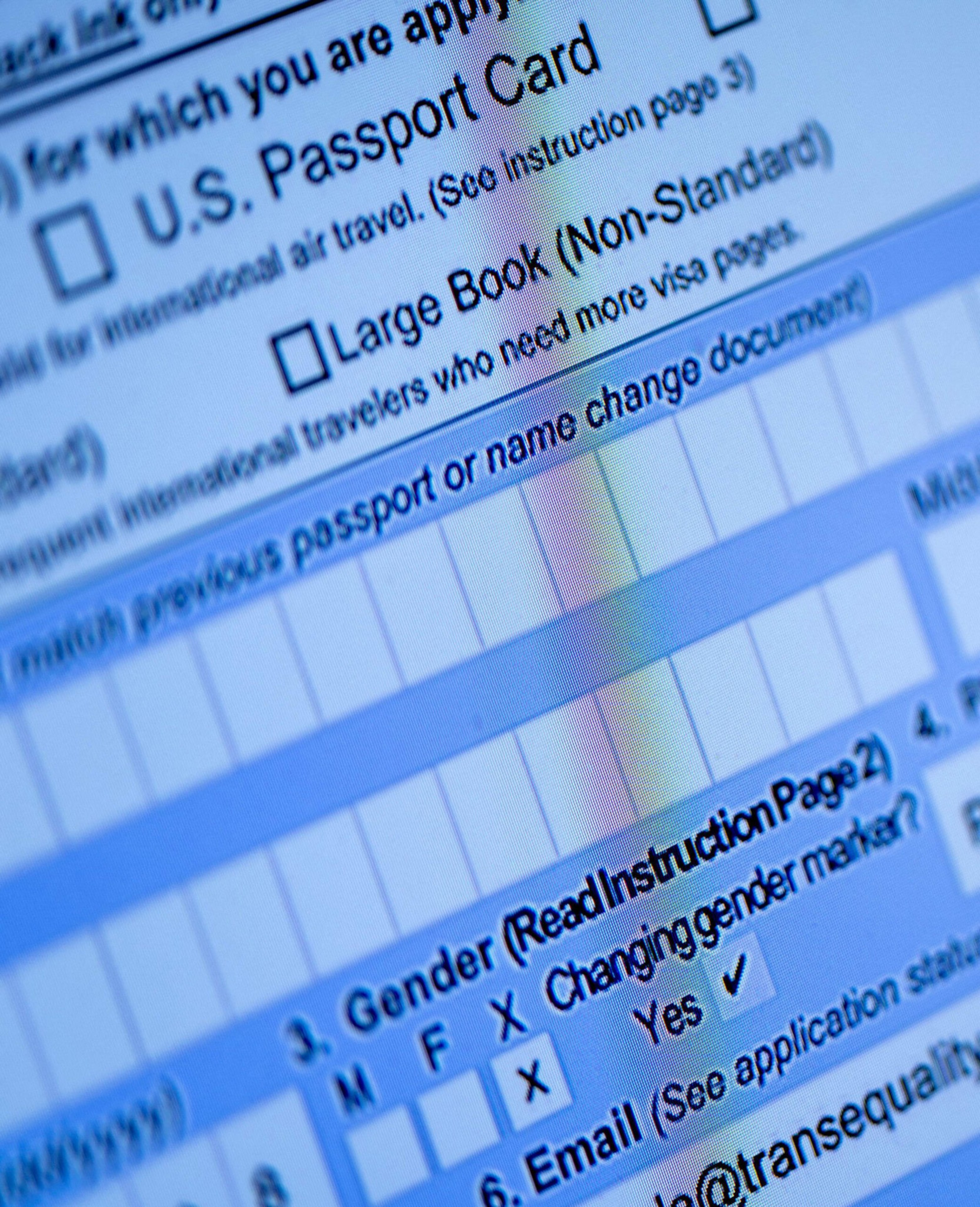The letter from San Francisco Superior Court was hand-addressed to “A.U. Kane,” which was how I knew it was good news. My man was out of town when I checked the mail, but I called him so we could experience some semblance of togetherness while I opened the envelope. Inside were three certified copies of a decree granting me a change of name and gender identity.
In the eyes of the government, I’m officially a nonbinary person, Mx. Astrid Urania Kane.
Considering how indifferent I’ve always been to state recognition of my long-term relationship—we’ve been together 12 years, but we’re not married—I’m taken aback by how important this is to me. My gender marker is X, which will never not sound cool.
The day after I got the letter, I updated my byline. Somehow, the most public part of my life was the easiest to change.

I already changed it once, in 2020, hyphenating my given name and my chosen name because the boy-girl dichotomy telegraphed to readers that I’m a nonbinary journalist. But “Peter-Astrid” proved unwieldy, and as time went on, I realized, “I’m Astrid, dammit!” So Astrid I am.
Aside from some idyllic ancient culture that revered gender nonconforming people as intermediaries with the divine, there’s never been a better time and place to be trans or nonbinary than early 21st century California. But even here and even today—a decade after Laverne Cox graced the cover of Time, gender-neutral bathrooms started proliferating and they/them pronouns escaped academia—willing oneself into existence remains an ordeal.
For starters, that court order cost $556, including three certified copies at $50 each. For a minimum-wage earner in San Francisco, that’s almost four full days of pretax wages.
California’s form is also notoriously confounding. In fact, I got it all wrong until a kind clerk whipped out her highlighter and showed me the way.
Even after overcoming that monster hurdle, it becomes clear just how much state and federal agencies are nonoverlapping fiefdoms that do not talk to one another. A surprising number of trans people don’t even bother trying to deal with it all.
It’s a binary world, too, so transitioning from male to female is slightly tidier than going from M to X.

Take the Social Security Administration. I need a new Social Security card to update my driver’s license (which already has an X, but under my birth name) and renew my expired passport. Nonbinary markers have been available on passports since April 2022 (opens in new tab), but Social Security’s forms recognize male and female only. The clerk at the Valencia Street office was genuinely apologetic, but ultimately unhelpful. I rolled my eyes and went with F, for “female” as much as for “fucking federal form, I’m not going backward now.”
I am not female, which means I lied to the feds as a matter of personal principle. When we’re not depicted as outright sociopaths, transfeminine people are often portrayed as deceitful and conniving. But the world can force these lies at the very moments one is pushing to live in the truth.
Even if all government bodies could harmonize into a one-stop, no-lies shop, that would have no effect on the private sector—or on the out-of-state political candidates texting my deadname to chip in five bucks. The New Yorker, the ACLU, Walgreens, the gym: I gotta do ’em all, one by one. And Twitter won’t let me change my handle without paying for that checkmark.
I sweet-talked my credit union into updating my debit card with nothing beyond a pinky-swear to provide my new driver’s license once I get it. That leeway would never have happened a decade ago! Credit cards are the most important thing, but amending one requires extra documentation, so that’ll be the last domino to fall.
Plenty of servers, bartenders and baristas are LGBTQ+. But because hospitality almost universally enforces a contrived, yes-sir/yes-ma’am politeness, queer people are going to keep calling me “Mr. Kane” with a smile until I fix this.

Roughly half the states recognize a nonbinary identity in some fashion, but California may be the keeper of the fewest gates. Navigating these bureaucracies used to be a much lonelier road. At every step, I’ve been in awe of the people who charted this course 25 years ago when you usually had to first prove you’ve had certain surgeries—let alone in the 1960s, when I could have been arrested for dressing like I do, even in SF. Those generations made the world exponentially better.
Yet the backlash is brewing, from Nashville to the New York Times (opens in new tab).
In the months since I submitted my paperwork, several states have banned gender-affirming books (opens in new tab), prohibited health care for young trans people and outlawed drag. It’s clear to most trans folks that the endgame is our annihilation. I admit my defiance is tempered a little by the fear that some future president’s paramilitary goons may liquidate me as a gender traitor.
Overall, though, my space-pagan name and I are very happy. The impostor syndrome of feeling “not trans enough” has disappeared, and even better, I move through the world without the pervasive, low-level disorientation I used to carry.
Regarding my byline, the trans friend I came out to first, and who has shown me immeasurable generosity of spirit, told me: “You’re really out there, now.” He said it with a sense of mutual respect that left me dizzy.
But he’s right—I am. And if you read what I write from now on, you’ll know it’s really me who wrote it.

